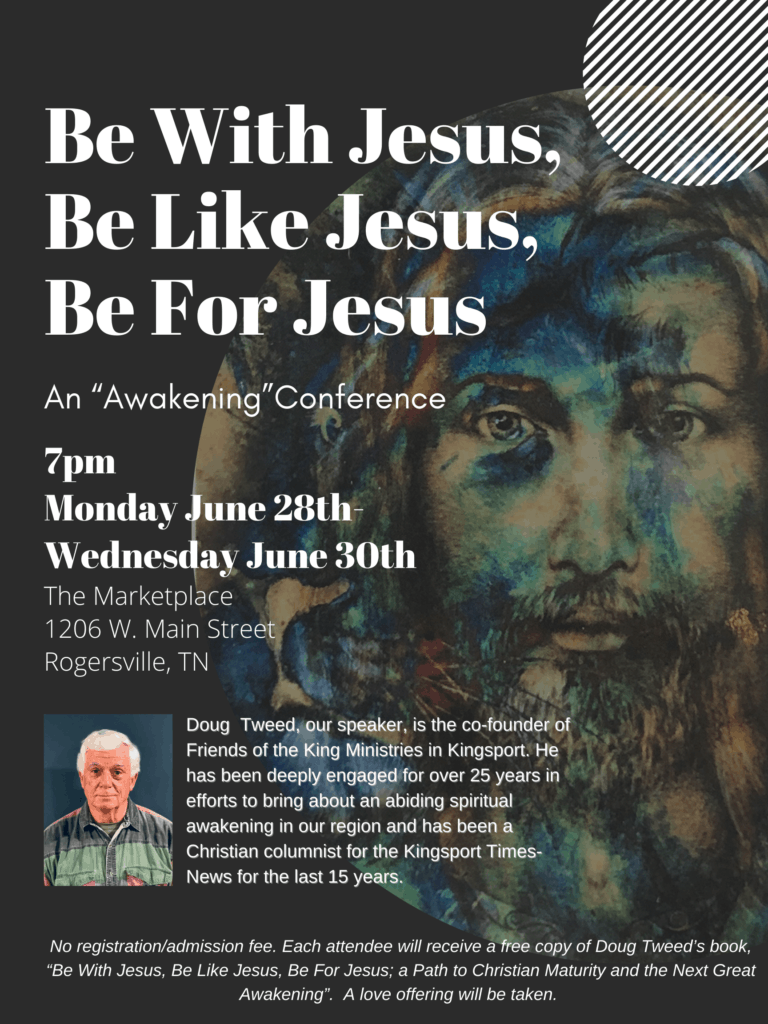GOD WANTS YOU TO CHANGE YOUR MIND
“Do not be conformed to this world, but be transformed by the renewal of your mind, that by testing you may discern what is the will of God, what is good and acceptable and perfect.” (Romans 12:2)
God wants you to change your mind.
If you are a “not-yet Christian”, God wants you to change your mind about how you can receive everlasting life through Jesus. (John 1:12-13, 3:16)
If you are a Christian, God wants you to know the change in mind that brought you into everlasting life was only the first change in mind He desires for you. (Hebrews 5:11-14)
I have repeatedly asserted in this column that “agape” love is the fundamental law of God’s kingdom, and it is, but the fundamental battleground for God’s kingdom on earth is the mind, not the heart. (2 Corinthians 10:3-5)
What we think, consciously and subconsciously, continually dictates how we feel: love, peace, joy, hope, and a sense of purpose, on the one hand, or fear, anxiety, anger, isolation, depression, and aimlessness. Which set of emotions dominates our nation and world today? Which set reflects your own life and the lives of those around you?
Even more important, what we think and how we feel dictate what we choose in every circumstance based upon what we consider important, possible, desirable, frightening, urgent, and good or evil.
We have all learned, often the hard way, that we are never fully in control of our circumstances. Our control is limited to our ability to make personal choices based upon the circumstances in which we find ourselves. Do we want those choices to be grounded in truth or lies? (Psalm 51:6; Proverbs 23:23)
Satan, the consummate enemy of God and mankind, is called “the father of lies”, and “the deceiver of the whole world”. (John 8:44; Revelation 12:9) We have been learning life lessons from this deceived and broken world since birth.
To counteract this, God sent His Son Jesus: The Truth, the Word made flesh, and the light of the world. (John 1:1-14, 8:12, 14:6) God also gave us His Holy Spirit of truth, who can lead us into all truth. (John 16:13-14) And through the Holy Spirit, God gave us the Bible, the Spirit-breathed scriptures that teach us what we need to know and do. (2 Timothy 3:3-16-17; Psalms 1, 119)
Because the mind is the fundamental battleground, the Gospel invitation to the lost is, “Repent and believe!” (Mark 1:14-15, 6:12; Luke 24:45-47; Acts 2:38-39, 17:30-31) The Greek word used for “repent” is “metanoia”, which literally means “change your mind”. The truth sets you free. (John 8:32)
And because the mind remains the fundamental battleground after you become a Christian, the invitation for disciples of Jesus is to keep changing your mind and your ways by learning to obey everything Jesus commanded. (Matthew 28:19-20; Acts 2:42) As Paul put it in Romans 12:2, stop conforming to this broken world by living in accordance with what the world teaches. “Renew” your mind so you can “transform” your life to the wonderous ways of Christ. More truth will set you more free.
The Greek word used in Romans 12:2 for “transformed” is “metamorphoo”. It indicates major change, and so, today, we use the word, “metamorphosis”, to describe how caterpillars become butterflies and tadpoles become frogs. 2 Corinthians 3:18 describes our process of metamorphosis into the image of Christ.
The Greek word used for “renewal” of our mind is “anakainosis”. It also indicates major change – making something new and improved, or superior to what it was before. It comes about by what Paul calls “testing”: the Greek word “dokimazo”, which means to learn by examination and actual use.
Otherwise put, we must be both hearers and doers of the Word, having and keeping His commandments. (Matthew 7:24-27; John 14:21, 23; James 1:22-25) Because the Spirit who inspired the Bible now lives in us, we have access to the mind of Christ and can, by our testing, understand things of God our natural minds could never comprehend. (1 Corinthians 2:9-16)
My friends, our nation is struggling, and the research of Barna Group and Pew Research Center reveal: (1) the percentage of Americans who identify as Christian is shrinking significantly; (2) church participation is shrinking dramatically; (3) we are losing our young people at a devastating rate; and (4) the majority of American Christians are biblically illiterate. Few have a biblical worldview.
These developments are causally related. When Christians remain conformed to the world rather than transformed into Christ’s image, we are ineffective in our mission to witness and disciple. To be transformed, we must recognize Bible study and practice are not religious options. Through them, we reframe our worldview and understanding of reality so “the eyes of our hearts” are enlightened and we know the hope to which we have been called. (Ephesians 1:18-21)
We need to change our minds.
God bless you, and God bless our community.

